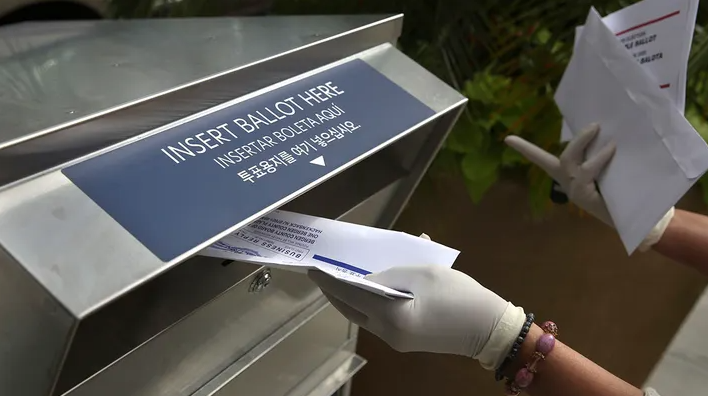Supreme Court to Hear RNC Challenge on Counting Late-Arriving Mail Ballots
The Republican National Committee’s fight to end the counting of mail-in ballots that arrive after Election Day will now be heard at the highest level, as the U.S. Supreme Court announced Monday it will take up the case.
At issue is a Mississippi law that allows mail-in ballots postmarked by Election Day to be counted if they arrive up to five days later. The RNC argues this practice violates federal election law and is pushing for a nationwide ban on the counting of late-arriving ballots, regardless of when they were cast.
The case stems from Mississippi’s 2020 decision to allow a grace period for ballot delivery, a move that mirrored temporary pandemic-era policies adopted across the country. The Fifth Circuit Court of Appeals sided with the RNC, declaring the state’s law inconsistent with federal standards. Mississippi appealed to the Supreme Court to preserve its policy.
While the case specifically concerns Mississippi, its implications could ripple across more than a dozen states—red and blue—that currently accept ballots after Election Day if they are postmarked on time.
In legal filings, Mississippi maintains that casting a ballot by Election Day satisfies the federal requirement for when voting must occur, and argues that receiving and counting those ballots in the days following does not violate the law.
David Becker, head of the Center for Election Innovation & Research, warned of the broader impact a Supreme Court ruling could have. “We as a society do not want a bunch of ballots coming in the day or two after, delivered late, not because of the voter but because of the Postal Service, and having those ballots being the margin of victory in a close race,” he said.
RNC Chairman Joe Gruters said the case is about restoring confidence in elections by ensuring results are determined by Election Day.
“Allowing states to count large numbers of mail-in ballots that are received after Election Day undermines trust and confidence in our elections,” Gruters said. “Elections must end on Election Day, which is why the RNC led the way in challenging this harmful state law.”
The outcome of this case could redefine how mail-in voting is handled in the United States heading into the 2026 midterms. A ruling is expected by next summer.

